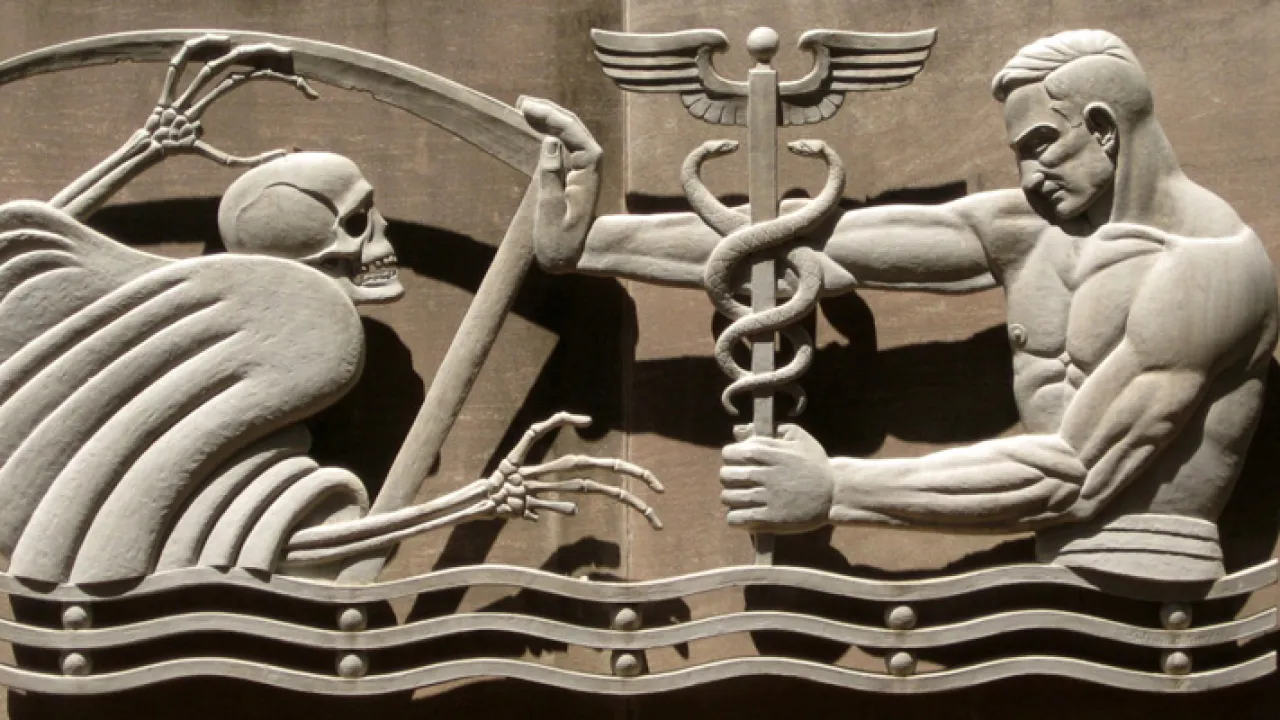Keeping in mind the Greek definition and the uses of pharmakeia, it not only depends upon the drug but the intent of its use from the distributor and user.
Some Christians will keep away from drugs of any kind because they don’t want to be a part of witchcraft or sorcery. The reason for this thinking stems from the use of the Greek word “pharmakeia.” The purpose of this article is two-fold:
- To inform other brothers and sisters in Christ why some Christians may not take medicines of any kind.
- To understand the Greek word “pharmakeia” and what Scripture has to say on the matter.
So, why won’t some Christians take pharmakeia – medications – and what is the definition of pharmakeia?
From the Greek (G5331 – “φαρμακεία” or “pharmakeia”), this word is used three times in the New Testament of the Holy Bible. The words “Witchcraft,” as well as “sorceries,” are used in the Scriptures below in place of pharmakeia. The translators of the King James Bible used witchcraft and sorceries to fit the context of these verses, which is why pharmakeia became witchcraft and sorceries. These verses are in the mind of Christians who will not use medications of any kind as they see them as “tools of the Devil”:
Scriptures in the mind of Christians that will not take medications:
- “Neither repented they of their murders, nor of their sorceries, nor of their fornication, nor of their thefts.” ~Revelation 9:21 KJV.
- “And the light of a candle shall shine no more at all in thee; and the voice of the bridegroom and of the bride shall be heard no more at all in thee: for thy merchants were the great men of the earth; for by thy sorceries were all nations deceived.” ~Revelation 18:23 KJV.
- “Idolatry, witchcraft, hatred, variance, emulations, wrath, strife, seditions, heresies,” ~Galatians 5:20 KJV – speaking to the traits of the “old man” or “carnal nature.”
Now, let’s get into the definition of the word utilizing a few research sources:
- “Pharmakeia” is the employment of drugs for any purpose: sorcery, magic, or enchantment (Mounce).
- It is a medication (which is where we get the word “pharmacy”), that is, (by extension) magic (literal or figurative): – sorcery, witchcraft (Strong).
- This word has a literal and metaphorical meaning. The idea of sorcery and magical arts is often found in connection with idolatry and fostered by it. However, when it is used metaphorically in the Holy Bible, we see that it is used in deceptions and seductions of idolatry (Thayer).
While the use of the word pharmakeia points towards a drug, the use of it is often linked to something terrible. To understand the context of how “Sorcerers” (“φαρμακεύς” – pharmakeus – G5332) utilized pharmakeia (witchcraft & sorcery) as well as how God views these areas, you can read Ezekiel 22:18; Deuteronomy 18:10; 1 Samuel 15:23; 1 Chronicles 10:13-14; 2 Chronicles 33:6; Acts 8:9-11; Acts 16:16-19.
Putting aside the consequences of the opening three verses, where sorcery and witchcraft were punished, and looking solely at the word. we see the creative intent of the drug is one of the things that makes it good or evil in the eyes of God (sorcery, magic, etc.), but also the intent of its use (deceptions and seductions of idolatry).
So, is pharmakeia “good” or “evil”?
It really comes down to creation and motive.
- If pharmakeia is created for the sole purpose of altering the mind and enslaving others, then pharmakeia is used as a tool of evil.
- If pharmakeia was created for good purposes only but was misused by the individual taking it or the person distributing it, then pharmakeia – in that instance – is used as a tool of evil.
- If pharmakeia was created for good, is taken to help cure a person of physical or mental ailments, and the doctor intends for the person taking pharmakeia to make lifestyle changes that might get them off the pills, then pharmakeia, the doctor, and the individual are not doing evil in the eyes of God.






